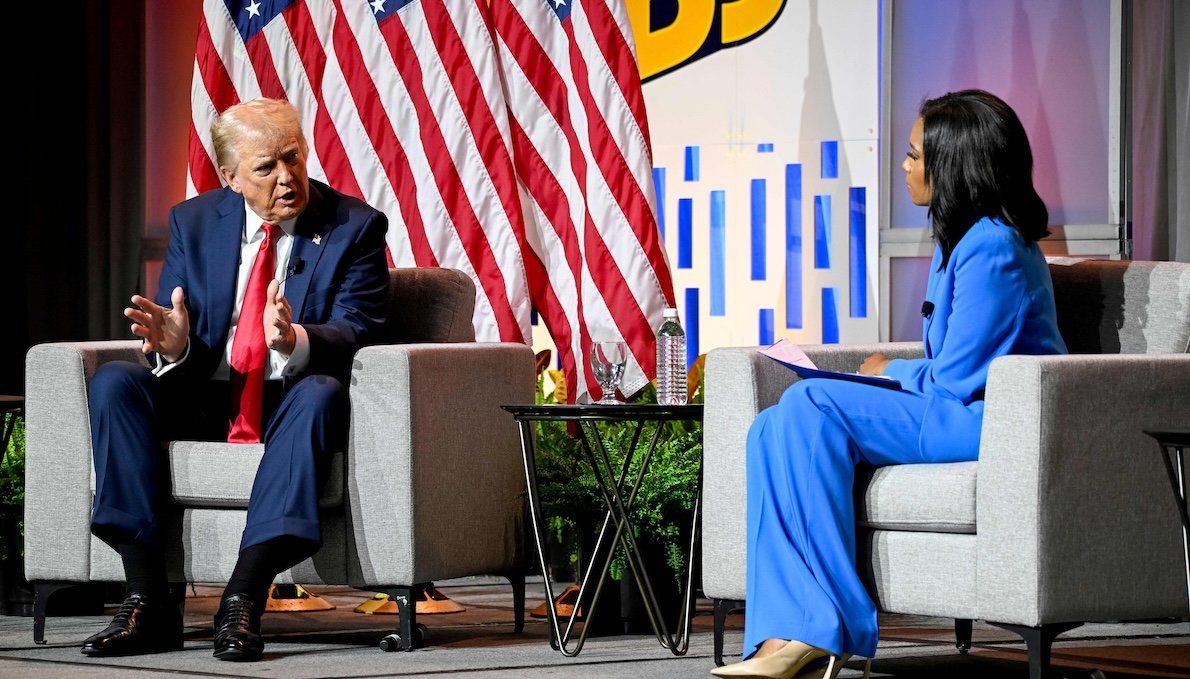On Wednesday, former President Donald Trump appeared on a panel at the National Association of Black Journalists convention in Chicago, where GZERO’s very own Tolu Olasoji was in attendance.
Trump set the tone for a combative exchange with the all-female panel of journalists from FOX, ABC, and Semafor, accusing them of creating a hostile environment. When asked about his Democratic opponent for the White House, he questioned Vice President Kamala Harris’s racial identity. He said Harris “was Indian all the way, and then all of a sudden she made a turn and she became a Black person.” Please note: Harris is of Black Jamaican and Indian descent and a graduate of Howard University, an HBCU.
Then came a deluge of more lies, everything from migrants taking “Black jobs,” and Democrats favoring infant executions, to claims he was the best president for Black people since Abraham Lincoln.
Many saw the train wreck coming. Before the event began, anti-Trump protesters — who overwhelmed the presence of Trump supporters — assembled outside the Hilton Chicago to voice their disapproval of his appearance, reflecting the views of many rank-and-file NABJ members. The organization’s leadership maintained that inviting presidential candidates to engage with Black media during an election year is a tradition. Trump was the one who threw a curveball this year by accepting the NABJ’s invitation after declining twice previously. Harris, meanwhile, had a scheduling conflict but offered to attend virtually, which the organization declined.
